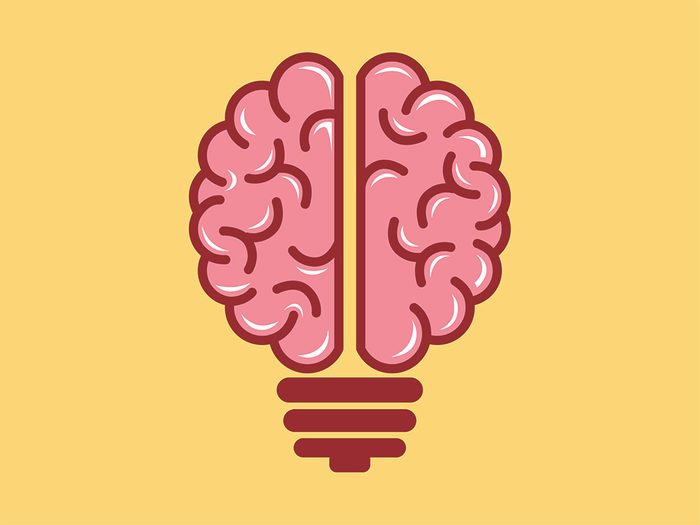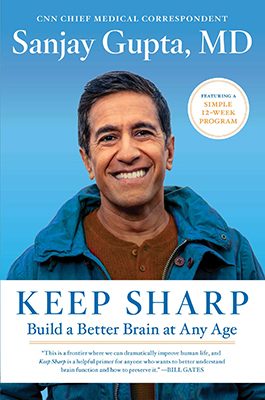Sanjay Gupta Has Good News for Your Brain

Five easy ways to stave off cognitive decline (it’s never too late to start!)
Sanjay Gupta’s ability to demystify complicated concepts has made him a pop-culture icon. The neurosurgeon and CNN chief medical correspondent’s latest book, Keep Sharp: Build a Better Brain at Any Age, hangs on one basic and extremely encouraging belief: Cognitive decline is not inevitable, no matter your age or access to resources. But what helps you ward off that decline may be different for someone else — there is no one-size-fits-all solution. Here are five simple interventions he says can have a significant impact on cognitive function and long-term brain health for most people.
(Related: Do Brain Games Actually Work?)
1. Move it.
Exercise, both aerobic and nonaerobic (such as strength training), is good for the body but even better for the brain. Physical exertion, in fact, is the only thing scientifically documented to improve brain health and function. While we can record associations between, say, eating a healthy diet and having a healthier brain, the connection between physical fitness and brain fitness is clear, direct and powerful. People fail to appreciate how valuable muscle mass is to quality of life, he writes: It impacts recovery from illness and injury, and the ability to stay mobile and perform basic everyday tasks, as well as overall metabolic health.
(Related: Why Exercise Can Be the Most Effective Way to Relieve Stress)
2. Challenge yourself.
Gupta cites a 2014 study from the University of Texas at Dallas that found trying new things, like quilting or digital photography, or even learning a new piece of software or language, can strengthen the brain. But so will seeing a 3D movie, says Gupta, joining a club or even using your non-dominant hand to brush your teeth.
(Related: This Is the Most Relaxing Hobby You Can Take Up)
3. Ditch multi-tasking. And take a nap.
Relaxing isn’t just for the body — your brain needs to chill out too. Scores of well-designed studies routinely show that poor sleep can lead to impaired memory, and chronic stress can reduce your ability to learn and adapt to new situations. And according to a group of researchers at MIT, Gupta writes, something as commonplace (and stressful) as multi-tasking can slow your thinking. The brain doesn’t like to concentrate on executing two activities that demand conscious effort, thinking, and/or comprehension and skill. It switches its attention between tasks so quickly we’re given the illusion we can perform multiple tasks together.
(Related: What Your Sleep Problems May Be Telling You)
4. Focus on the right fuel.
The link between diet and brain health was anecdotal for a long time, but now there’s evidence to show that consuming certain foods (such as cold-water fish, whole grains, extra virgin olive oil, nuts and seeds, and fibrous whole fruits and vegetables) while limiting others (those high in sugar, saturated fat and trans-fatty acids) can help you avoid brain decline, protect it against disease and maximize its performance.
(Related: The 8 Worst Foods for Your Brain)
5. Talk to…(drum roll)…other humans.
Having a diverse social network can improve our brain’s plasticity and help preserve our cognitive abilities, Gupta writes. In the midst of a pandemic, when our contact with people is limited, this qualifies as not-so-good news. But it’s a good reminder that “social distancing” is a bit of a misnomer. The key is to figure out ways to be socially active while staying physically distant. Your brain will thank you for it.

Keep Sharp: Build a Better Brain at Any Age, published by Simon & Schuster, is on sale January 5, 2021.
Next: 38 Habits to Start Today to Keep Your Brain Healthy at 80




